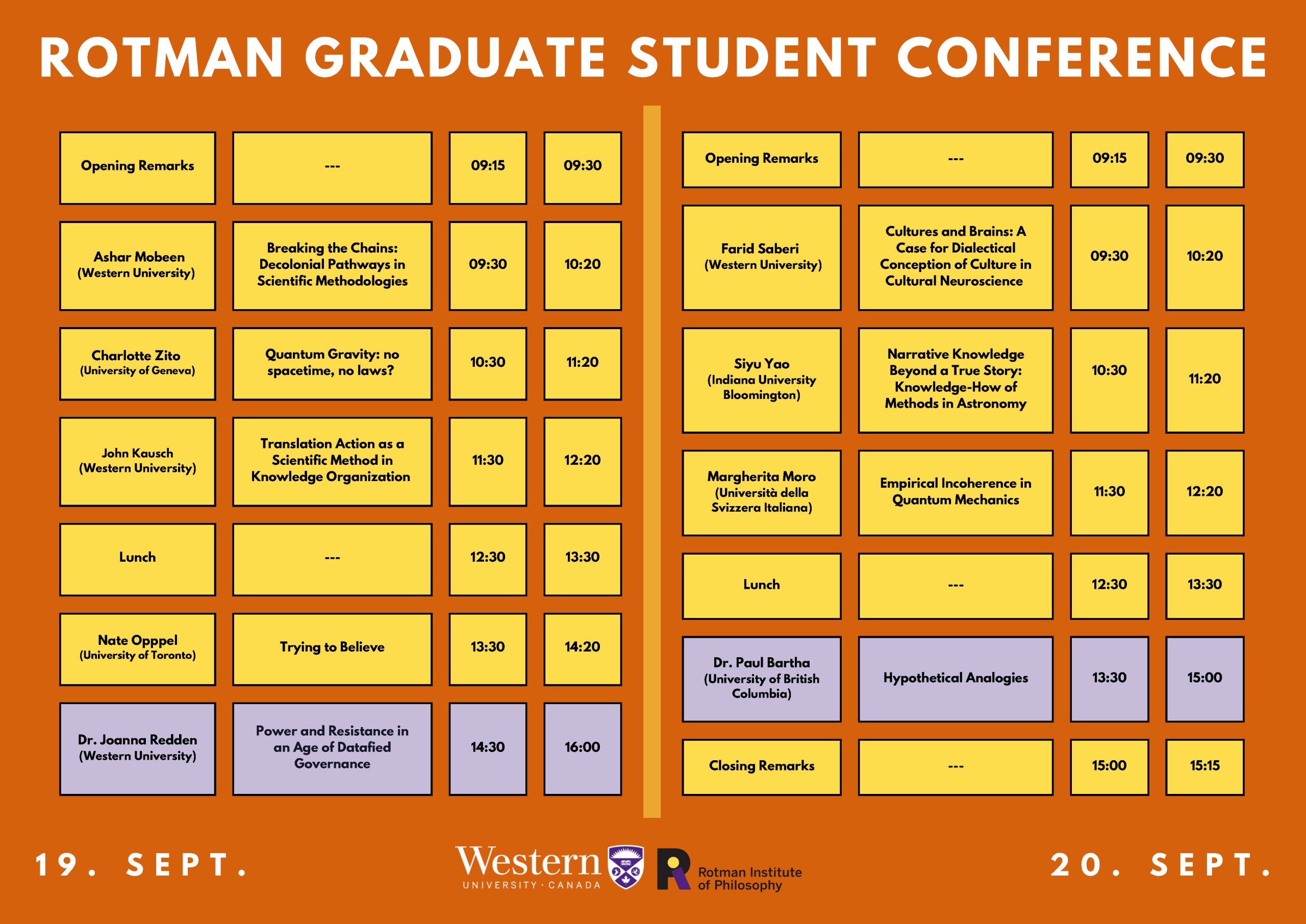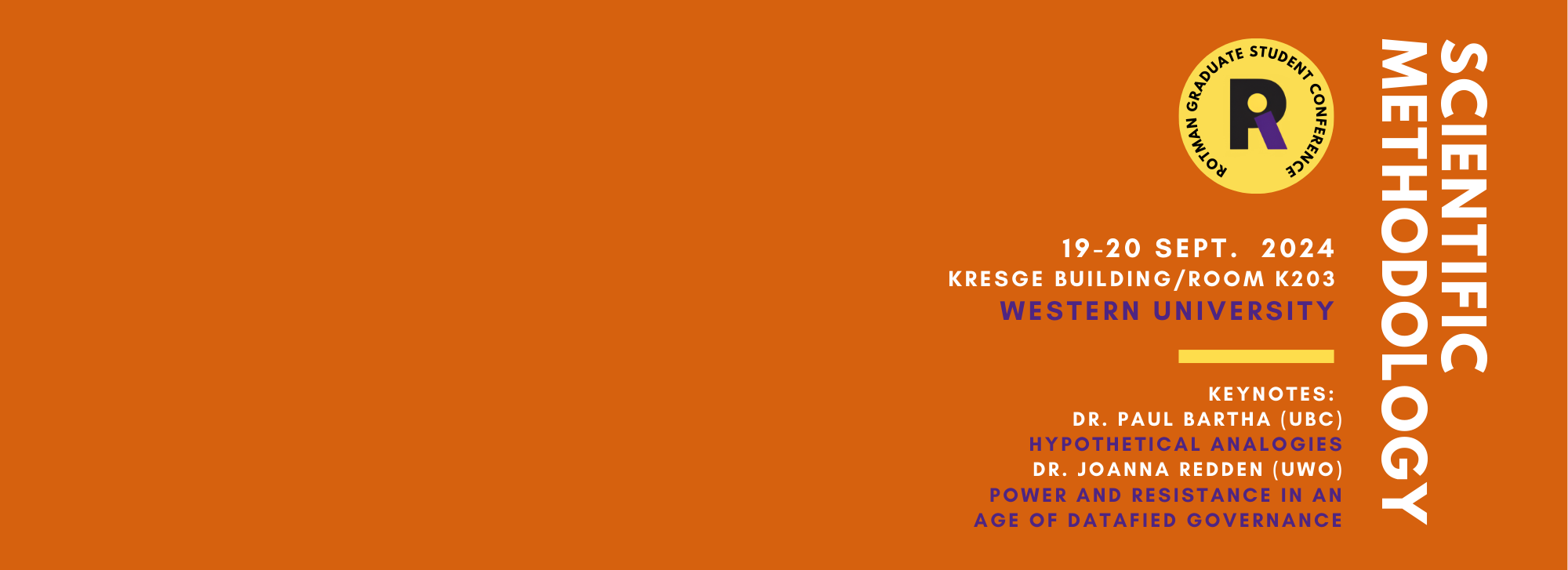Please click on the dates below to access the respective Zoom links.
Overview
‘The topic of this year’s Rotman Graduate Student Conference is scientific methodology. The conference will host student speakers from various fields from physics and neuroscience to philosophy and cultural studies. The conference is intended for a wider academic audience, so following it shouldn’t require any particular academic background. All the student talks will be 25 minutes long and followed by 25 minutes of moderated discussion where everyone is invited to ask questions. Conference attendance is free and open to everyone. If you are planning to attend, please register so we can issue you a name tag.
Keynote Speakers
“Hypothetical Analogies” – Paul Bartha, Professor of Philosophy, University of British Columbia
Abstract:
The use of analogies in scientific reasoning was a staple of both 19th century science and philosophy of science. The inventor of a novel explanatory hypothesis should (Herschel) or could (Whewell) exhibit an analogy between the new hypothesis and a real case. This is one version of the vera causa requirement. Even in the 19th century, however, we find some analogies based not on real but rather on imaginary or hypothetical cases – for example, Maxwell’s elaborate mechanical analogue of the electromagnetic field. Hypothetical analogies (which can also be understood as a special type of thought experiment) continue to be important in both scientific work and contexts such as legal reasoning. This paper explores roles for hypothetical analogies and how they differ from analogical arguments based on real cases.
“Power and Resistance in an Age of Datafied Governance” – Joanna Redden, Associate Professor of Information and Media Studies, Western University
Abstract:
The increasing turn to AI in efforts to be more productive and efficient raises key questions about how decision-makers come to know about and engage with people and social issues. What does this shift suggest about the way governance is changing? How is datafication accelerating older practices of oppression while also introducing new power dynamics that draw upon the ubiquity of data processing? Drawing on research into data harms and cancelled systems, this presentation stresses the importance of learning from people trying to redress and prevent harm. This work makes clear how technologies are sites of struggle and that the ways technologies are developed and used are not inevitable (Eubanks 2018). More time and energy needs to be devoted to understanding the competing values, politics, and visions informing these struggles (Benjamin 2022) to enable better futures for everyone.
Event Schedule

Sponsors
Society of Graduate Students
Canadian Journal of Philosophy
Department of Philosophy
Rotman Institute of Philosophy
Organizers
Veljko Simovic (Chair & speaker manager)
Carson Johnston (Finance)
Kawthar Fedjki (Call for papers)
Saher Panjwani (Submissions and Reviews)
Daniel Bjorklund (Keynote Manager)



